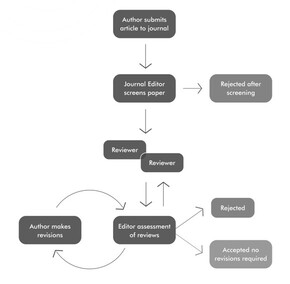Focus and Scope
Semua Disiplin Ilmu
Section Policies
Articles
Peer Review Process
Journal Dedikasi Untuk Negeri is a journal published by Universitas Muhammadiyah Lampung. The research article submitted to Psyche open journal system will be peer-reviewed after the submission. The accepted article will be available online following journal peer-reviewing process. Language used in this journal is Indonesian. For plagiarism check, Psyche's editor will check plagiarism on the title, abstract and body text of the article. By using several plagiarism detection software (Turnitin), avoidance of publication violation is implemented. In certain condition with strong evidence, if an article is found with plagiarism indication, editorial board will reject article automatically.
All papers are fully peer-reviewed. We only publish articles that have been reviewed and approved by highly qualified researchers with expertise in a field appropriate for the article. We used a double-blind peer-reviewing process. Detailed information about the flow for the manuscript submission (author) to the acceptance by the editor is shown in the following figure:

Publication Frequency
JDN:Jurnal Dedikasi Negeri Is Publish teo time a year on july anddesember articles can be submit at any time
Open Access Policy
This journal provides immediate open access to its content on the principle that making research freely available to the public supports a greater global exchange of knowledge.
This work is licensed under a Creative Commons Attribution-ShareAlike 4.0 International License.



1.png)



